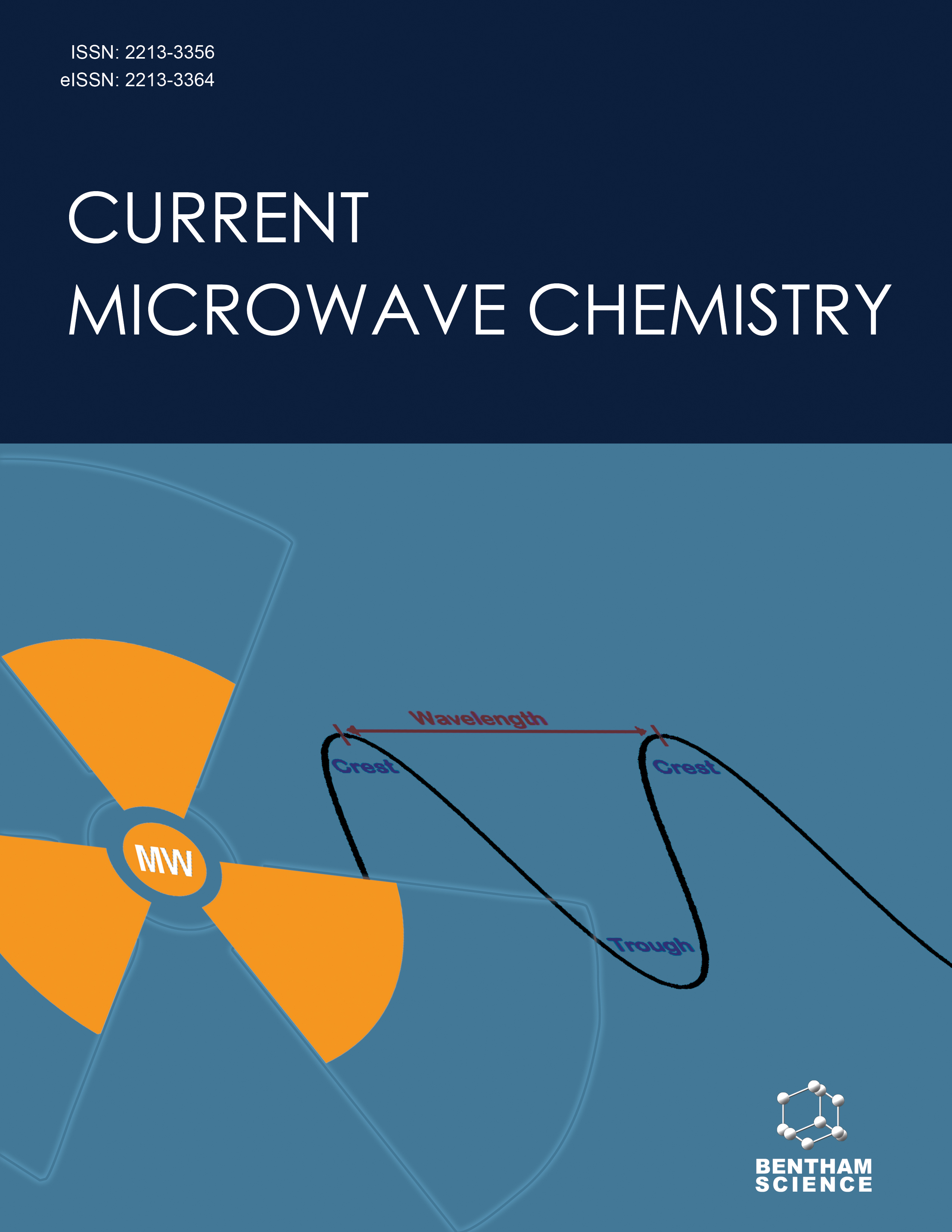-
s Microwave-Assisted: An Efficient Aqueous Suzuki-Miyaura Cross- Coupling Reaction of the Substituted 1H-1,2,3-Triazoles
- Source: Current Microwave Chemistry, Volume 9, Issue 2, Aug 2022, p. 90 - 98
-
- 01 Aug 2022
Abstract
Background: A variety of natural products reveal the presence of the 1H-1,2,3-triazole moiety in their chemical structures. In general, these molecules also play a significant role in the agrochemical, medicinal and pharmaceutical industries. Microwave-assisted reactions have attracted great interest for researchers to synthesize 1H-1,2,3-triazole compounds in shorter times with increased yields. Objective: The objective of this study is to optimize the purity and yield of the product, shorter the reaction time, and make the reaction more eco-friendly with the help of microwave-assisted organic synthesis. Methods: The present work elucidates a very simple but efficient and rapid, highly productive synthesis of various substituted 1H-1,2,3-triazole series, using the Suzuki-Miyaura cross-coupling reaction, employing microwave irradiation in water with tetrabutylammonium bromide (TBAB). Utilizing (S)- (-) ethyl lactate as the starting material, the synthesis of the substituted 1H-1,2,3- triazole aryl bromide (1) was achieved. Results: This compound (1) was subjected to the Suzuki-Miyaura cross-coupling reaction under microwave irradiation, using a variety of aryl boronic acids in an aqueous medium, to attain high yields of the target products, namely 3a-w. Overall, this is an environmentally benign, very efficient technique under microwave irradiations as a green and eco-friendly source. Only those methodologies that involve microwave-assisted reactions during synthesis in a related manner have been reviewed. Conclusion: Microwave-assisted Suzuki-Miyaura cross-coupling reactions in the water of substituted 1H-1,2,3-triazole series can be employed to quickly explore and increase molecular diversity in synthetic chemistry. In this respect, microwave-mediated methods help researchers to make helpful studies.


